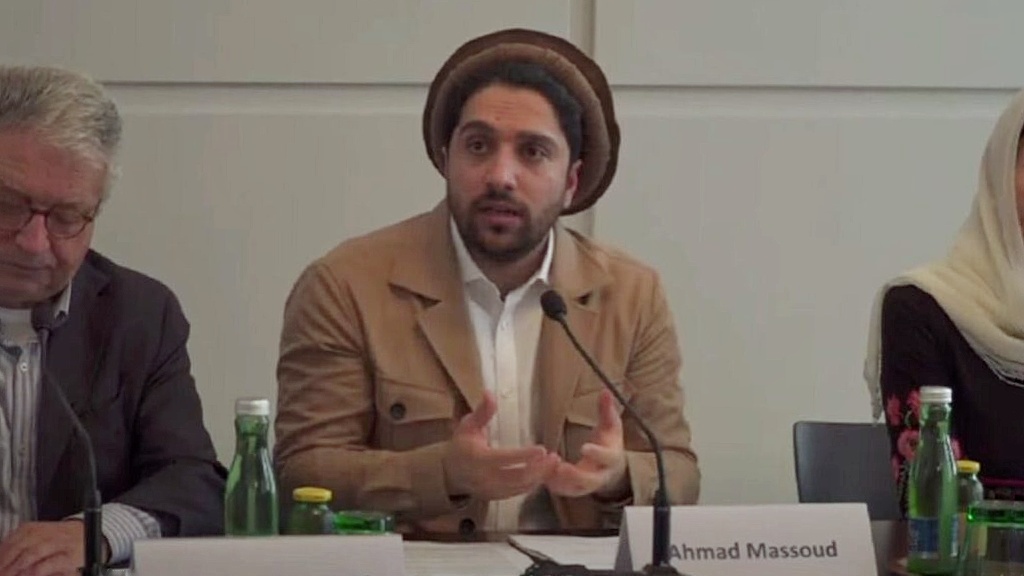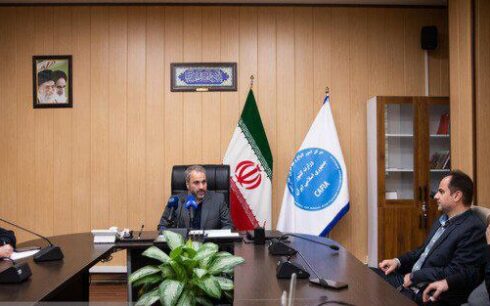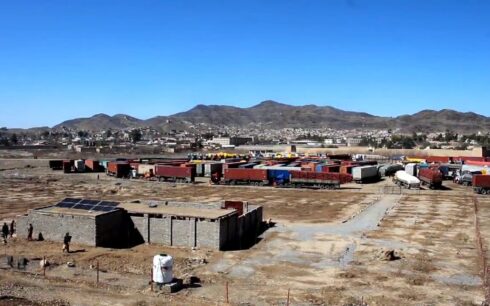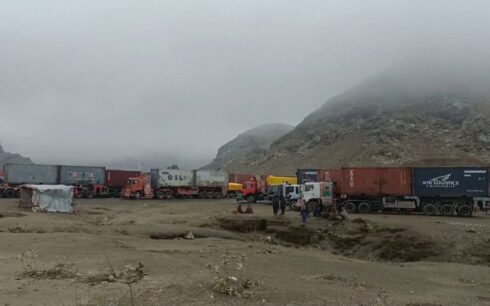Leader of Afghanistan’s National Resistance Front (NRF) Ahmad Massoud sent a chilling warning on Wednesday about Afghanistan becoming a safe haven for trans-national terrorist groups, which he says are flourishing in the country.
In an interview with the US-based Hudson Foundation, Massoud said this information comes directly from arms dealers in the country who are selling weapons to these groups.
“More than 20 regional terrorist groups exist in Afghanistan. Let me just give you a couple of examples. First. Last year we (the NRF) were the main dominant buyers of equipment and weaponry in Afghanistan. We were buying it from the Taliban; we were buying it from a lot of different sellers; … the NRF, we were buying it from the Taliban; the corruption already exists in the Taliban ranks as well and we were buying it from them; we were buying it from a lot of other groups which actually managed to get their hands on American equipment.
“We were the main and the dominant buyers but we are a very tiny one, or we are probably one of the smallest buyers right now.”
He said there is currently a huge demand for weapons, and prices are “very high”. In fact, prices were now “too expensive” for the NRF whereas last year, it was a very different scenario.
Massoud said that when speaking to these arms dealers, they are told that prices have escalated due to demand. He said there are many terrorist groups buying weapons “right now” including the likes of the Tehreek-e-Taliban Pakistan (TTP), the Eastern Turkistan Islamic Movement (ETIM), Jaish ul-Adl and Ansarullah.
“Many other terrorist groups are buying (weapons) right now. So the market is very high; and the competition is very high,” which is driving up the prices – making it too expensive for the NRF, he said.
According to him, this is a new trend, as the situation was different last year. Weapons dealers say “there are more buyers”, buyers who are from different terrorist groups, he said.
Massoud also stated that the NRF has “clear evidence” of the presence of terrorist groups across Afghanistan. “They are recruiting; they are creating training camps, and also they are operating.” He said Afghanistan is no longer just a hub for al-Qaeda, ISIS (Daesh) and the Taliban but now more than “a dozen terrorist groups” – both regional and international – exist in the country.
He said terrorist groups that “feel unsafe either in Syria, or in Turkey, or in Iraq or in Pakistan or in any other country, where do they come? They come to Afghanistan because it’s very safe for them.”
US adds to its global terrorist list
Massoud’s interview comes just days after the US State Department designated several commanders of militant groups, including a top anti-Pakistan militant leader as global terrorists – all of whom are operating out of Afghanistan.
The State Department announced the designations Thursday amid growing concerns in the region that terrorists have had more operational freedom on Afghan soil after the return of the Taliban to power.
Osama Mehmood, the chief of al-Qaida in the Indian Subcontinent – a regional branch of the global terror network – and two of his associates have been added to the list of “global terrorists.”
The US also designated Qari Amjad, the deputy chief of the Tehreek-e-Taliban Pakistan for waging deadly terrorist attacks in Pakistan from its Afghan bases.
In a statement last week, US Secretary of State Antony Blinkin said the designations are “part of our relentless efforts to ensure that terrorists do not use Afghanistan as a platform for international terrorism.”
Blinken said that Washington would continue to use “all relevant tools to uphold our commitment to see to it that international terrorists are not able to operate with impunity in Afghanistan.”
Meanwhile, on Friday, the TTP issued a statement denouncing the US terrorist listing of Amjad, claiming it does not need to use Afghan soil nor does it pose a threat to the global community. The group asserted that its activities were limited to the territory of Pakistan.
The Taliban have, however, continued to deny reports of terrorist groups sheltering in Afghanistan despite an American drone strike on July 31 that killed fugitive al-Qaeda leader Ayman al-Zawahiri at a safe house in Kabul.
A the time of the strike, the Biden administration accused the Taliban of breaching repeated assurances to the world that they would prevent transnational terrorists from using Afghan soil as a sanctuary.
Thursday’s move by the State Department on the terror designations came on the same day Pakistan warned of growing cross-border terrorism emanating from Afghanistan. Interior Minister Rana Sanaullah told reporters in Islamabad that the situation was “alarming and dangerous” for regional peace.





